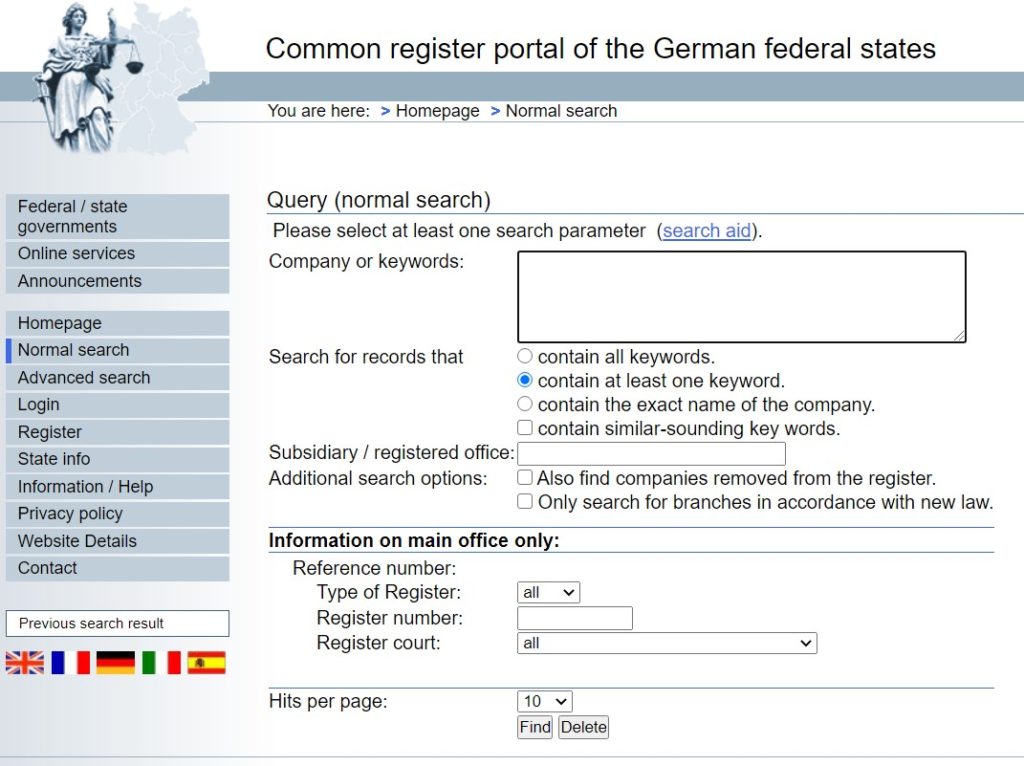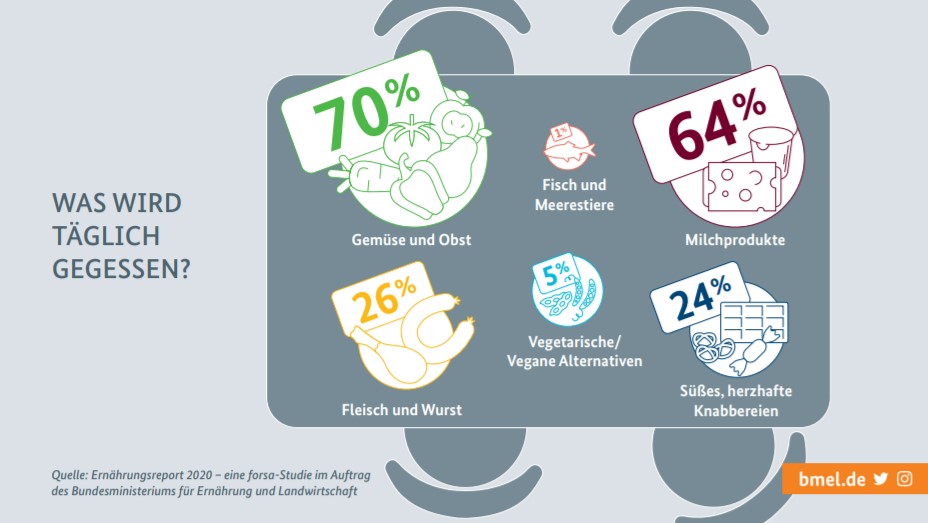This week, let’s take a look together at the data sources you should consult if you want to carry out your market research in Germany. You will find the list of articles in this series at the bottom of the page. A checklist is also provided at the end of this article.
Contact us for your B2C market research
Summary
- Official national statistics
- Companies financial data
- Consumer protection
- Customs and border protection
- Sector data for your market research in Germany
- Also worth consulting
Official national statistics
For your market research in Germany, as in all countries, it makes perfect sense to use statistics, especially national and official statistics, as a basis for your research. They will give credibility to your project and your dossiers (financial, research, location, and so on). They are also very accessible since each country has an official institute that offers the highest level of quality. In Germany, go to the DeStatis (Statistisches Budesamt) website where you will find files on demographics, the economy, the environment, the state and the Länder, sectors and companies as well as the labour and employment market. You can also carry out a specific search by keywords.
How to use this data for your market research?
- Define a geographical location (catchment area) based on regional demographics and economy
- Understanding consumer purchasing behaviour
- Defining competitors in the market
- Understanding some key legislative restrictions
This data will be particularly useful if you need to carry out PESTEL research (to find out more about PESTEL, click here).
Companies financial data
Whether it is to understand the profitability of your project, to strengthen your competition research or to ensure the financial health of your selection of partners and suppliers, you will need to analyse the financial data of the market and its players. To do this, first go to the Handelsregister website, which is intended for registering businesses and companies. On this site, you will find the company’s legal information (status, shareholders, and so on) by carrying out a simple search by keywords or the name of the company.

Secondly, the company register (Unternehmensregister) will give you access to specific financial data of the company, in addition to the annual balance sheet.
You can do this research for many companies:
- direct and indirect competitors (those that offer a solution to the same problem you are trying to solve)
- potential partners and suppliers to judge the health and attractiveness of the market
- prospects to understand their investment potential for those who would work in B2B
Consumer protection
To understand industry trends and consumer protection issues in Germany, you can visit two websites: Stiftung Warentest organises its data by sectors and topics (health, pensions, housing, food, transport, family, insurance, and so forth) and offers comprehensive data on consumer options and related regulations.
Further and additional information on the individual sectors can be found on the Verbraucherzentrale website as well as on the website of the German Centre for European Consumers (EVZ) for questions relating to product and service offers in Europe.
In this way, you can position yourself concerning your competitors and confirm or disprove the interest of your future product or service. Remember that the first idea is rarely the right one. Don’t be discouraged if you perceive a lack of alignment with market demand. Consider this as an opportunity to improve your primary idea.
Customs and border protection
For all import and export transactions with Germany, please contact the customs authorities via Zoll.de. Here you will find an overview of customs and border protection regulations.
Various topics are covered in the “Companies” tab, such as the transport of goods, services and capital, taxes and customs duties, and so on.
The customs sites are an excellent source of data for your PESTEL research, in particular for the “L” (Legal aspects).
We have dedicated an article to market research applied to the export sector. You can access it here.
Sector data for your market research in Germany
As you can imagine, if you have been reading us for some time, it is not only the analysis of national statistics that are taken into account when carrying out your market research. To make it as exhaustive as possible, you will also need to analyse sectoral data (structure and situation of the sector, specific legislation, agreements, aids and subsidies, and so forth). Below you will find an overview of the best sources of sectoral data.
Health
There are two sites to visit if you are active in the health sector. The first is the DeStatis site mentioned above, which dedicates several files and publications to the health sector. Of course, we also advise you to visit the website of the Ministry of Health. The latter is also a significant source of information, as it offers analyses of the sector according to different themes and publishes news about the sector in its “Press” tab.
Also, the Federal Institute BfArM offers a completer and more comprehensive overview of medical devices and medicines.
The Food industry
To collect data and analyses concerning the German food industry, you can visit the website of the Federal Ministry of Food and Agriculture (BMEL) in the section “Food“. There you will find various reports and dossiers specific to the sector. One tab that will be essential to visit is the one devoted to consumer protection, which will provide you with information on the legislation in force on this subject.
For those who would like to delve more deeply into the subject from the consumer’s point of view, the site of the Federal Centre for Food (DZfE) is the portal promoted by Germany to inform and advise consumers on subjects related to their diet.
Find the annual report on the eating habits of Germans here.

Agriculture
As the agricultural and food sector is closely interlinked, you will find information on the website of the Federal Ministry of Food and Agriculture under the tab “Farming“. Several important topics are covered there. Please visit the website in its entirety for a peripheral view of the sector and its challenges.
We also advise you to visit the website of the Federal Ministry for Economic Cooperation and Growth (BMZ) to consult their focus on agricultural policies, trade and subsidies.
Logement
To understand how the housing market in Germany works and the opportunities it offers, you should visit the website of the Federal Ministry of the Interior, Building and Community Affairs. The homepage will provide you with an overview of news from the sector. However, you will need to dig deeper to understand the intricacies of the German housing market. To do this, go to the “Topics – Building and Housing” tab, which features specific and various articles. To name but one, find here the primary data on the housing market.
Energie
The Federal Network Agency will be your ally for all your research on the energy market. This website provides you with an overview of the many topics related to the energy sector in Germany: from production to sales, including regulations, trends, dissemination, and so forth.
You can also get a more detailed picture of the market from the consumer’s point of view in the energy tab for consumer topics.
Education
First of all, it is essential to take into account the fact that the German Länder have a certain degree of autonomy in the management of policies related to education. However, national information and data are defined and disseminated on the website of the Federal Ministry of Education and Research (BMBF). You will, of course, need to consult this source, but also the sites of the various Länder: Baden-Württemberg, Lower Saxony, Bavaria, Berlin, Brandeburg, Bremen, Hamburg, Hesse, Mecklenburg-Vorpommern, North Rhine-Westphalia, Rhineland-Palatinate, Saarland, Saxony, Saxony-Anhalt, Schleswig-Holstein, Thuringia.
Innovation
Your market research in Germany will be significantly enhanced if you visit the website of the Federal Ministry of Education and Research. There you will find details on support for innovative and entrepreneurial initiatives. In particular, the “Research” tab is subdivided by sector of activity to make it easier for you to navigate and access information.
Checklist
| Theme | Source of information | Interest for your market research |
| Nationals statistics | DeStatis | Official figures to contribute to your PESTEL study |
| Financial data | Handelsregister | Competition research, profitability of the sector |
| Consumer protection | Stiftung Warentest | Market analysis, sector analysis |
| Customs and border protection | Zoll.de | Legal aspects of the PESTEL analysis |
| Sector data – Health | DeStatis | Files on health issues and medicines |
| Sector data – The food industry | BMEL – Food | Indicators on the food industry market and legal aspects |
| Sector data – Agriculture | BMEL – Farming | Agricultural legislation, agreements and policies |
| Sector data – Housing | Ministère fédéral de l’intérieur, de la construction et de la communauté | Housing market and related issues |
| Sector data – Energy | Agence fédérale des réseaux | Energy indicators and legislation |
| Sector data – Education | BMBF – Education | Data related to education topics on a national level |
| Sector data – Innovation | BMBF – Research | Aid for innovation |
Also, worth consulting
- Top 10 data sources in France
- Top 10 data sources in Belgium
- Top 10 data sources in Switzerland
- Top 10 data sources in Luxemburg
- Top 10 data sources in the United Kindgom
- Top 10 data sources in Italy
- Top 10 data sources in Spain
- Top 10 data sources in Portugal
- Top 10 data sources in the Netherlands
- Top 10 data sources in the EU
Illustrations: Shutterstock
Posted in Marketing.





